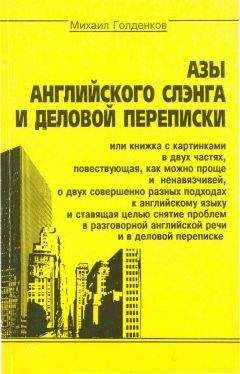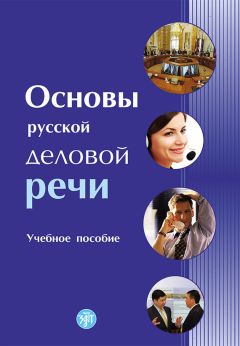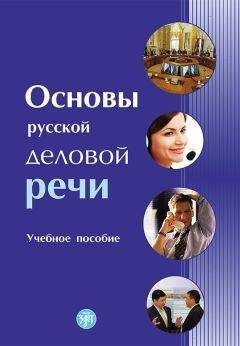Илья Франк - Английский язык с Р. Киплингом. Истории просто так
mouth [mauT], stupid ['stjHpId], wash [wOS]
‘I wanted the Stranger-man to fetch Daddy’s spear, so I drawded it,’ said Taffy. ‘There wasn’t lots of spears. There was only one spear. I drawded it three times to make sure. I couldn’t help it looking as if it stuck into Daddy’s head — there wasn’t room on the birch-bark; and those things that Mummy called bad people are my beavers. I drawded them to show him the way through the swamp; and I drawded Mummy at the mouth of the Cave looking pleased because he is a nice Stranger-man, and I think you are just the stupidest people in the world,’ said Taffy. ‘He is a very nice man. Why have you filled his hair with mud? Wash him!’
Nobody said anything at all for a long time (долгое время никто ничего /не/ говорил), till the Head Chief laughed (пока Главный Вождь /не/ засмеялся); then the Stranger-man (who was at least a Tewara) laughed (потом засмеялся Незнакомец (который, по крайней мере, был Теварцем)); then Tegumai laughed (потом засмеялся Тегумай) till he fell down flat on the bank (пока он /не/ упал плашмя на берег); then all the Tribe laughed more and worse and louder (потом засмеялось все Племя больше, и хуже, и громче). The only people who did not laugh were Teshumai Tewindrow and all the Neolithic ladies (единственными людьми, которые не смеялись, были Тешумай Тевиндроу и все Неолитические дамы). They were very polite to all their husbands (они были очень вежливы ко всем своим мужьям), and said ‘idiot!’ ever so often (и крайне часто говорили «болван!»).
Then the Head Chief of the Tribe of Tegumai cried and said and sang (тогда Главный Вождь Племени Тегумая вскричал и сказал нараспев), ‘O Small-person-without-any-manners-who-ought-to-be-spanked (О Маленькая невоспитанная особа, которую следует отшлепать), you’ve hit upon a great invention (ты наткнулась на великое изобретение; to hit upon — случайно обнаружить)!’
laugh [lRf], worse [wWs], idiot ['IdIqt]
Nobody said anything at all for a long time, till the Head Chief laughed; then the Stranger-man (who was at least a Tewara) laughed; then Tegumai laughed till he fell down flat on the bank; then all the Tribe laughed more and worse and louder. The only people who did not laugh were Teshumai Tewindrow and all the Neolithic ladies. They were very polite to all their husbands, and said ‘idiot!’ ever so often.
Then the Head Chief of the Tribe of Tegumai cried and said and sang, ‘O Small-person-without-any-manners-who-ought-to-be-spanked, you’ve hit upon a great invention!’
‘I didn’t intend to (я не хотела; to intend — намереваться, планировать); I only wanted Daddy’s black-handled spear (мне только нужна была Папочкина острога с черной рукояткой),’ said Taffy (сказала Тэффи).
‘Never mind (не беда; never mind — ничего, неважно, не беспокойтесь, не беда). It is a great invention (это великое изобретение), and some day men will call it writing (и когда-нибудь люди назовут это письмом). At present it is only pictures (сейчас это только картинки / изображения), and, as we have seen to-day (и, как мы увидели сегодня), pictures are not always properly understood (картинки не всегда понимают правильно; properly — должным образом, как следует, правильно). But a time will come (но наступит время), O Babe of Tegumai (О Милое Дитя Тегумая), when we shall make letters (когда мы создадим буквы) — all twenty-six of ‘em (все двадцать шесть[109] /из них/), — and when we shall be able to read as well as to write (и когда мы сможем как читать, так и писать), and then we shall always say exactly (и тогда мы всегда будем выражать словами в точности то; to say — выражать словами, сообщать, передавать) what we mean without any mistakes (что /мы/ имеем в виду, без каких-либо ошибок). Let the Neolithic ladies wash the mud out of the stranger’s hair (пусть Неолитические дамы вымоют грязь из волос чужака).’
intend [In'tend], invention [In'venS(q)n], exactly [Ig'zxktlI]
‘I didn’t intend to; I only wanted Daddy’s black-handled spear,’ said Taffy.
‘Never mind. It is a great invention, and some day men will call it writing. At present it is only pictures, and, as we have seen to-day, pictures are not always properly understood. But a time will come, O Babe of Tegumai, when we shall make letters — all twenty-six of ‘em, — and when we shall be able to read as well as to write, and then we shall always say exactly what we mean without any mistakes. Let the Neolithic ladies wash the mud out of the stranger’s hair.’
‘I shall be glad of that (я буду рада этому = меня это обрадует),’ said Taffy (сказала Тэффи), ‘because, after all (потому что, несмотря на то), though you’ve brought every single other spear in the Tribe of Tegumai (что хотя вы и принесли все до единого копья в Племени Тегумая), you’ve forgotten my Daddy’s black-handled spear (вы забыли острогу с черной рукояткой моего Папочки).’
Then the Head Chief cried and said and sang (тогда Главный Вождь закричал, и сказал, и запел = вскричал и сказал нараспев), ‘Taffy dear (Тэффи, дорогая), the next time you write a picture-letter (в следующий раз, когда ты будешь писать письмо-картинку), you’d better send a man who can talk our language with it (тебе лучше отправить с ним человека, который умеет говорить на нашем языке), to explain what it means (чтобы он объяснил, что оно означает). I don’t mind it myself (я лично не против), because I am a Head Chief (потому что я Главный Вождь), but it’s very bad for the rest of the Tribe of Tegumai (но это очень скверно для остальных в Племени Тегумая), and, as you can see (и как ты видишь), it surprises the stranger (это удивляет чужака).’
though [Dqu], every ['evrI], talk [tLk]
‘I shall be glad of that,’ said Taffy, ‘because, after all, though you’ve brought every single other spear in the Tribe of Tegumai, you’ve forgotten my Daddy’s black-handled spear.’
Then the Head Chief cried and said and sang, ‘Taffy dear, the next time you write a picture-letter, you’d better send a man who can talk our language with it, to explain what it means. I don’t mind it myself, because I am a Head Chief, but it’s very bad for the rest of the Tribe of Tegumai, and, as you can see, it surprises the stranger.’
Then they adopted the Stranger-man (потом они приняли Незнакомца) (a genuine Tewara of Tewar (истинного Теварца из Теварцев)) into the Tribe of Tegumai (в Племя Тегумая), because he was a gentleman (потому что он был джентльменом = воспитанным и порядочным человеком) and did not make a fuss about the mud (и не стал поднимать шум из-за грязи; to make a fuss — поднимать шум / скандал, бузить) that the Neolithic ladies had put into his hair (которую Неолитические дамы напихали в его волосы). But from that day to this (но с того дня и поныне) (and I suppose it is all Taffy’s fault (а я полагаю, в этом всем вина / виновата Тэффи)), very few little girls have ever liked learning to read or write (очень мало маленьких девочек /когда-либо/ любили учиться читать и писать). Most of them prefer to draw pictures (большинство из них предпочитают рисовать картинки) and play about with their Daddies (и играть со своими Папочками) — just like Taffy (в точности как Тэффи).
adopt [q'dOpt], fuss [fAs], few [fjH]
Then they adopted the Stranger-man (a genuine Tewara of Tewar) into the Tribe of Tegumai, because he was a gentleman and did not make a fuss about the mud that the Neolithic ladies had put into his hair. But from that day to this (and I suppose it is all Taffy’s fault), very few little girls have ever liked learning to read or write. Most of them prefer to draw pictures and play about with their Daddies — just like Taffy.
THIS is the story of Taffimai Metallumai (это история Тэффимай Металлумай) carved on an old tusk (вырезанная на старом бивне) a very long time ago by the Ancient Peoples (очень давно Древними Народами = Людьми). If you read my story (если вы прочли мою историю), or have it read to you (или вам ее прочитали), you can see how it is all told out on the tusk (вы поймете, как она вся рассказана на бивне). The tusk was part of an old tribal trumpet (бивень был частью старинной племенной трубы) that belonged to the Tribe of Tegumai (которая принадлежала Племени Тегумая). The pictures were scratched on it with a nail or something (картинки были нацарапаны на ней гвоздем или чем-то подобным), and then the scratches were filled up with black wax (а затем царапины были заполнены черным воском), but all the dividing lines and the five little rounds at the bottom were filled with red wax (но все разделяющие линии и пять маленьких кружочков внизу были заполнены красным воском). When it was new (когда она = труба была новая) there was a sort of network of beads and shells and precious stones at one end of it (на одном ее конце было вроде плетения из бусин, и раковин, и драгоценных камней); but now that has been broken and lost (но сейчас оно отломалось и потерялось) — all except the little bit that you see (все, кроме маленького кусочка, который вы видите). The letters round the tusk are magic (буквы вокруг бивня волшебные) — Runic magic (рунная магия) — and if you can read them (и если вы сможете прочесть их) you will find out something rather new (вы узнаете что-то очень новое). The tusk is of ivory (бивень из слоновой кости) — very yellow and scratched (очень желтый и исцарапанный). It is two feet long and two feet round (он два фута в длину и два фута в окружности), and weighs eleven pounds nine ounces (и весит одиннадцать фунтов девять унций[110]).
wax [wxks], precious ['preSqs], weigh [weI]
THIS is the story of Taffimai Metallumai carved on an old tusk a very long time ago by the Ancient Peoples. If you read my story, or have it read to you, you can see how it is all told out on the tusk. The tusk was part of an old tribal trumpet that belonged to the Tribe of Tegumai. The pictures were scratched on it with a nail or something, and then the scratches were filled up with black wax, but all the dividing lines and the five little rounds at the bottom were filled with red wax. When it was new there was a sort of network of beads and shells and precious stones at one end of it; but now that has been broken and lost — all except the little bit that you see. The letters round the tusk are magic — Runic magic — and if you can read them you will find out something rather new. The tusk is of ivory — very yellow and scratched. It is two feet long and two feet round, and weighs eleven pounds nine ounces.
THERE runs a road by Merrow Down (бежит дорога у Мерроу Даун; to run — бежать, тянуться) — A grassy track to-day it is (сегодня это заросшая травой тропа) — An hour out of Guildford town (она в часе ходьбы от города Гилдфорда), Above the river Wey it is (над рекой Уэй).
road [rqud], grassy ['grRsI], town [taun]
THERE runs a road by Merrow Down — A grassy track to-day it is — An hour out of Guildford town, Above the river Wey it is.
Here, when they heard the horse-bells ring (здесь, когда они = древние Бритты слышали звон колокольчиков лошадей), The ancient Britons dressed and rode (древние Бритты = они наряжались и ехали; to ride — ехать, скакать /верхом/) To watch the dark Phoenicians bring (чтобы посмотреть на то, как смуглые Финикийцы везут) Their goods along the Western Road (свои товары по Западной Дороге).
ancient ['eInSqnt], Briton [brItn], watch [wOC]
Here, when they heard the horse-bells ring, The ancient Britons dressed and rode To watch the dark Phoenicians bring Their goods along the Western Road.
And here, or hereabouts, they met (и здесь, или поблизости, они встречались) To hold their racial talks and such (чтобы вести межродовые / межплеменные переговоры и /для/ того подобного) — To barter beads for Whitby jet (чтобы выменивать бусы на черный янтарь Уитби), And tin for gay shell torques and such (а олово на пестрые крученые металлические ожерелья, украшенные ракушками и тому подобное; torque — крученое металлическое ожерелье, браслет /было распространено у бриттов и галлов/).




